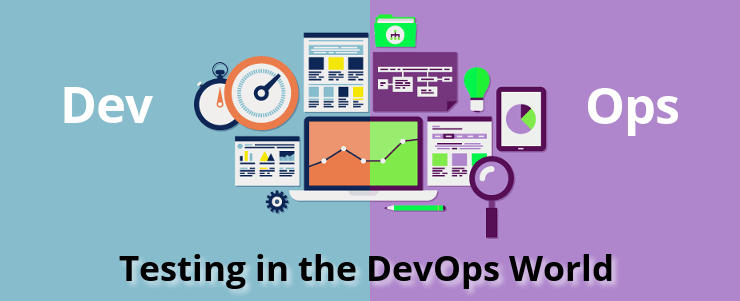Testing in the DevOps World
"The most powerful tool we have as developers is automation." - Scott Hanselman
In a previous blog about some stats that told the developing software testing story, we had identified the impact on testing strategies due to the growing adoption of DevOps as a key trend. Our CEO has also written in greater detail on how testing is changing due to DevOps. Looking back though it's clear this story is still developing and that something more remains to be said. In other words, it deserves a sequel and the central role in this continuing story is reserved for Test Automation.
You may ask, why does Test Automation deserve this star billing? Well, consider the DevOps way for a bit. This is a world with several, almost continuous iterative releases, each within days, even minutes, of each other, all being pushed out to the final production environment into the demanding hands of paying customers. So many releases, so little testing time and so much pressure to deliver quality - has there ever been a more, theoretically, perfect case for automated testing? Let's hope that puts the 'Why' question to bed — now let's move on to the 'How' and 'What'.

First, a look at the 'How'. As was already apparent in Agile, with so many iterative releases following so close on the heels of each other, it is absolutely impossible to build your automation in parallel with the product-under-test. Thus, with DevOps, it becomes critically important to involve the test automation team at an early enough stage of the product planning to be able to anticipate, as much as possible, the direction the product is likely to take and automate early. This is also the time to plan for the automation carefully.
Factors to consider include what conditions are most likely to remain reasonably unchanged and which are likely to undergo frequent changes? How reusable can you make the components of the automation framework? This is also a good time to define the objectives you are looking to achieve with the automation — Faster deployment? Better code quality? Greater confidence based on better regression tests? Essentially, start with the end in mind and measure as you go along to know if you are on the right track.
- So, on to the 'What'. There is both the opportunity for creating a comprehensive test automation framework and the threat that some of it could be rendered irrelevant by the pace of change in the product.
- That said, though, there is value to considering automating the Unit Tests as there is a reasonable chance that several specific components will remain relatively stable over the course of the many iterations.
- The greatest value could well be in automating the regression testing — the maximum bang for the buck considering the sheer number of releases. Many DevOps models allow code to be delivered late in the cycle and fixes can be applied right until the time that specific release goes live. Automating the regressions will allow you to test the entire code after each such addition and this makes it far more likely that a high-quality, bug-free product goes out to the end customer.
- Among the central value propositions of the DevOps, way is continuous deployment on the operational infrastructure. Continuous deployment means continuous integration of code and of the code into the operational infrastructure. This is where automation can play a key role. An interesting approach being followed by many is to run integration testing separately and parallel from unit testing and sometimes even before unit testing. This approach believes that the integration testing is not impacted by the business logic and is only concerned with whether the product works on the deployment infrastructure. Automation helps test this quickly and relatively comprehensively.
- There is also great value on automating the testing for the build — deployment stage starting at the test environment itself. The objective is to run the tests in the test or development environment and ensure smooth deployment in the production environment.
A quote we like about DevOps goes, "DevOps is not a goal, but a never-ending process of continual improvement". While agreeing with Jez Humble, who said this, perhaps we would like to add that this continual improvement is driven by continual testing, which is turn is based on a solid test automation platform. What do you think?
Share This Article:







